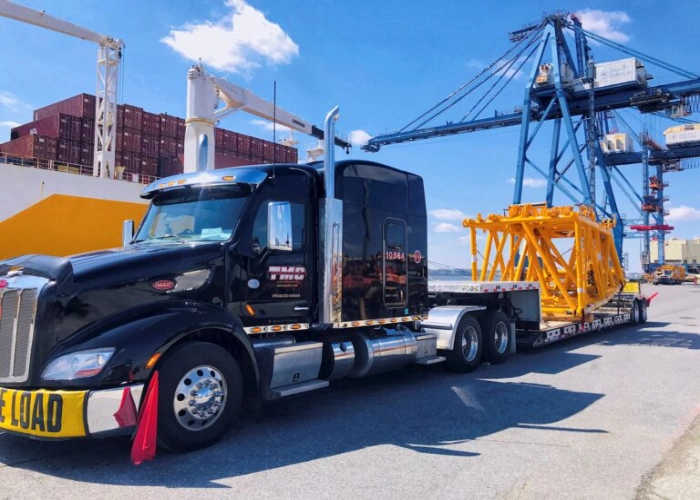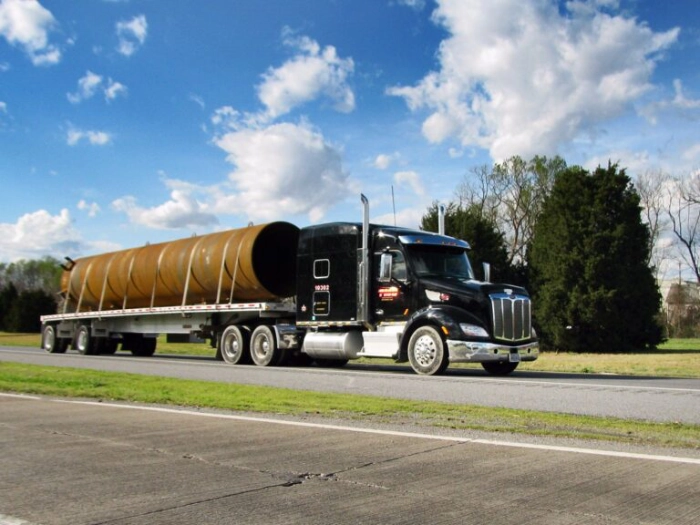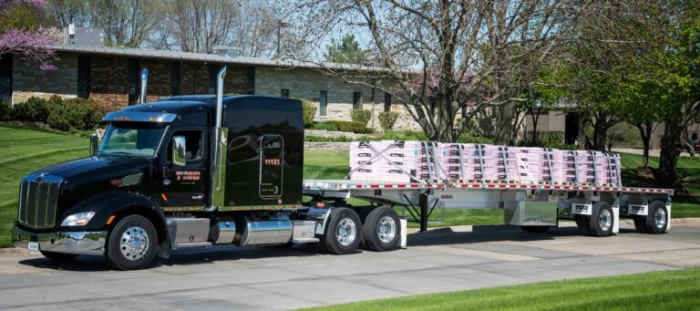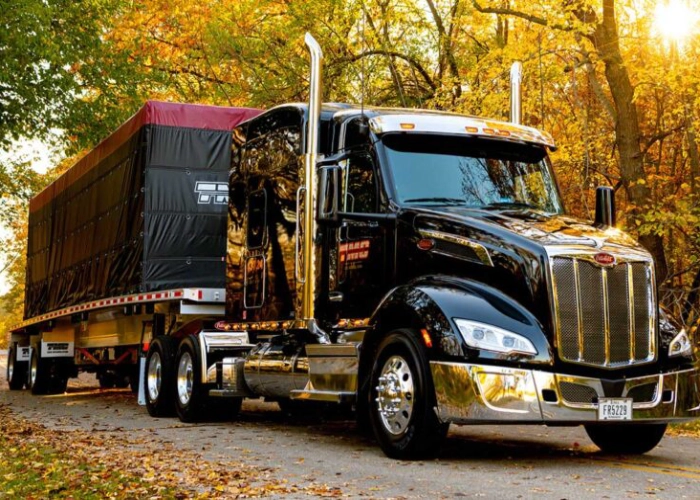Large items such as industrial machinery and military equipment can present logistical challenges if you are not familiar with how to transport them. These shipments typically require special handling, optimized routing, and additional permits because they may not be able to travel on all highways due to their size and weight. Understanding what an oversized load is, what weight limitations might apply, and what other requirements are necessary, can make the transportation process smoother.
Table of Contents
What is heavy haul trucking?
Heavy trucks are integral commercial vehicles for commercial activities such as transportation, agriculture, construction, and more. Heavy-haul trucking transport large items such as industrial machinery, military or agricultural equipment, and construction materials. Since trucks carry heavy loads, these shipments require special handling, optimized routing, and additional permits.
What is a heavy load?
Loads that exceed the legal limit regulated on most highways are considered heavy loads. While the numbers vary from country to country, anything over 8.6 feet wide, over 13.6 feet tall, over 53 feet, or exceeding 80,000 pounds gross weight is generally considered a heavy load.
Heavy haul truck operators can transport anything from heavy-duty military or mining equipment on a stepped bed or drop bed to aircraft parts or wind turbine blades.
Heavy loads often require specialized trailers and vehicles to transport, and there are different types. Some look like a conventional tractor trailer with a removable gooseneck (also known as an RGN trailer). Others come in multiple sections, with rear drive wheels or in different sections on articulated trailers.
Read more: How to Do Freight Calculations Work in 3PL Logistics?

Heavy Haul Trucking Special Requires Permits
Heavy-duty trucks require specialized permits and other documentation before moving them from one location to another. Ideally, these permits and all other special requirements are determined per shipment depending on each individual shipment.
Please note that these permits and regulations may be specific to particular cities, counties, or municipalities. Depending on the type of shipment and designated route, you may need additional paperwork and documentation, such as engineering studies and routing plans.
Additionally, the transportation of some commodities, such as hazardous materials, may also require their own specially designated permits.
Heavy Haul trucking rates flexible
Mistakes made when choosing the right heavy-duty trucking services can lead to unnecessary and unwanted expenses for your business.
Many trucking companies advertise low year-round shipping rates, offer discounts to subsets of customers, price-match options, and more that focus on the financials of heavy hauling.
Working with the right heavy-duty logistics company can save you time and money. One thing to know about heavy haul trucking is that shipping rates can vary based on seasons, availability, location, and type of cargo. However, when it comes to choosing the right heavy-duty truck, it is not always about whose the most affordable at the time. Limiting your heavy-duty truck options to affordability criteria can compromise safety and security.
Read more: Canada-wide shipment Service
What can a Canadian heavy haul trucking company do for us?
• Provide adequate equipment for a heavy load. Inadequate equipment can trigger an accident. In addition, accidents can cause a lot of problems: delays, cargo and equipment damage, bodily injury, legal liability. A trucking company that specializes in overweight cargo reduces your shipment’s risk by using a chassis that can safely handle the extra weight.
• Eliminate the need for overweight permits for certain cargo, or move more cargo weight in states that don’t issue heavy-lift permits. Some smart heavy-haul trucks use lighter chassis with aluminum wheels instead of steel. While perfectly capable of handling a heavy load, those chassis contribute less to the gross weight of the truck.

Some heavy-haul carriers use trucks with day cabs instead of larger sleeper cabs. Some will show up at your facility with a half tank of gas if that is all they need to get your container to the port. All of these strategies decrease the weight of the truck, allowing you to put more weight in the container while staying under 80,000 pounds max gross.
• Obtain the necessary permits to keep your cargo legal. If the truck’s gross weight exceeds 80,000 pounds, your trucker will keep you in compliance with the law, securing a permit for each state your cargo crosses. If the load is too big and overweight, the trucker will get permits to cover that too.
• Improve container loading to control your shipping costs. When your trucker has the proper equipment for a heavy load and secures the necessary permits, he can load more cargo into the container.
Let us say you are shipping boxes of products that weigh 440 pounds. each, and the steamship line charges $3,000 per container for ocean freight. If you work with a standard trucking company, you can ship 100 boxes, totaling 44,000 pounds, at a cost of $30 each.
However, if you work with a heavy-duty trucking company, you may be able to ship 125 boxes in the same container, for a total of 55,000 lbs. That makes the ocean cost $24 per box.
Essentially, you are sending 25 boxes free! For a year, heavy-duty trucks could help you reduce the number of containers needed to ship your cargo, say, from 100 to 90, saving you many thousands of dollars.
• Save valuable time with more efficient road routing. Some local roads between your facility and the port may have weight restrictions that put them off-limits for your heavy cargo. A local trucker with heavy hauling experience knows where those roads are and could suggest an alternate route.
It is better to plan a slightly longer trip in advance than to discover the problem only when the driver hits the restricted road and then waste time inventing a solution on the fly.
Read more: How to pike the best Shipping Company for Your e-commerce Store

Canada heavy haul trucking services
Heavy Haul Trucking needs an understanding of large trucks and knowledge of handling large and heavy equipment. It would be helpful if you had knowledge about special handling, optimized routes and additional permissions in some countries. This type of knowledge is useful when you need to transport large industrial equipment or military equipment that is bulky and huge.





